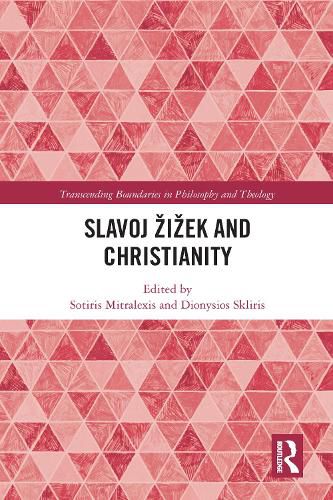Readings Newsletter
Become a Readings Member to make your shopping experience even easier.
Sign in or sign up for free!
You’re not far away from qualifying for FREE standard shipping within Australia
You’ve qualified for FREE standard shipping within Australia
The cart is loading…






Slavoj Zizek’s critical engagement with Christian theology goes much further than his seminal The Fragile Absolute (2000), or his The Puppet and the Dwarf (2003), or even his discussion with noted theologian John Milbank in The Monstrosity of Christ (2009). His reading of Christianity, utilising his signature elements of Lacanian psychoanalysis and Hegelian philosophy with modern philosophical currents, can be seen as a genuinely original contribution to the philosophy of religion. This book focuses on these aspects of Zizek’s thought with either philosophy and cultural theory, or Christian theology, serving as starting points of enquiry.
Written by a panel of international contributors, each chapter teases out various strands of Zizek’s thought concerning Christianity and religion and brings them into a wider conversation about the nature of faith. These essays show that far from being an outright rejection of Christian thought and intellectual heritage, Zizek’s work could be seen as a perverse affirmation thereof. Thus, what he has to say should be of direct interest to Christian theology itself.
Touching on thinkers such as Badiou, Lacan, Chesterton and Schelling, this collection is a dynamic reading and re-reading of Zizek’s relationship to Christianity. As such, scholars of theology, the philosophy of religion and Zizek more generally will all find this book to be of great interest.
$9.00 standard shipping within Australia
FREE standard shipping within Australia for orders over $100.00
Express & International shipping calculated at checkout
Slavoj Zizek’s critical engagement with Christian theology goes much further than his seminal The Fragile Absolute (2000), or his The Puppet and the Dwarf (2003), or even his discussion with noted theologian John Milbank in The Monstrosity of Christ (2009). His reading of Christianity, utilising his signature elements of Lacanian psychoanalysis and Hegelian philosophy with modern philosophical currents, can be seen as a genuinely original contribution to the philosophy of religion. This book focuses on these aspects of Zizek’s thought with either philosophy and cultural theory, or Christian theology, serving as starting points of enquiry.
Written by a panel of international contributors, each chapter teases out various strands of Zizek’s thought concerning Christianity and religion and brings them into a wider conversation about the nature of faith. These essays show that far from being an outright rejection of Christian thought and intellectual heritage, Zizek’s work could be seen as a perverse affirmation thereof. Thus, what he has to say should be of direct interest to Christian theology itself.
Touching on thinkers such as Badiou, Lacan, Chesterton and Schelling, this collection is a dynamic reading and re-reading of Zizek’s relationship to Christianity. As such, scholars of theology, the philosophy of religion and Zizek more generally will all find this book to be of great interest.